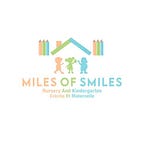How Music Benefits Early Childhood Development — Miles of Smiles
Music is not just a form of entertainment; it’s a powerful tool that can significantly impact a child’s development. From fostering cognitive skills to enhancing emotional well-being, the benefits of music in early childhood are immeasurable. In this article, we’ll explore how music contributes to the holistic development of young children and why it’s essential to incorporate music into their daily lives.
The Importance of Music in Early Childhood Development
Cognitive Development
Music has a profound effect on cognitive development in young children. Exposing them to music from an early age can improve their ability to think, reason, and problem-solve. Studies have shown that children who participate in music activities tend to perform better in subjects like math and science.
Emotional Development
Music has the power to evoke emotions and create connections. It helps children express themselves and understand their feelings better. Whether it’s a cheerful melody or a soothing lullaby, music can uplift moods and provide comfort during challenging times.
Social Development
Music encourages collaboration and teamwork, fostering social skills in young children. Singing and dancing together promote bonding and cooperation, helping children develop empathy and respect for others.
Music and Language Skills
Exposure to music enhances language development in early childhood. Singing nursery rhymes and repetitive songs helps children learn new words, improve pronunciation, and develop language comprehension skills.
Enhancing Motor Skills Through Music
Moving to music helps children develop gross and fine motor skills. Dancing, clapping, and playing musical instruments require coordination and control, promoting physical development and dexterity.
Music and Creativity
Music stimulates creativity and imagination in young minds. It encourages experimentation and exploration, allowing children to express themselves freely and develop their artistic abilities.
Music and Memory
Music has a unique ability to aid memory retention. Melodies and rhythms create strong associations in the brain, making it easier for children to remember information and concepts.
Integrating Music into Early Childhood Education Programs
Incorporating music into early childhood education programs is essential for holistic development. Music-based activities should be integrated into the curriculum to enhance learning experiences and promote overall well-being.
Tips for Incorporating Music at Home
Parents can play an active role in fostering a musical environment at home. Singing, dancing, and listening to music together create bonding opportunities and enrich family dynamics.
The Role of Parents and Caregivers
Parents and caregivers play a crucial role in nurturing a child’s love for music. They should encourage active participation and provide opportunities for musical exploration and discovery.
Challenges and Solutions
While incorporating music into early childhood development programs may face challenges such as limited resources or lack of training, innovative solutions such as online resources and community partnerships can help overcome these obstacles.
Conclusion
In conclusion, music is a powerful tool for promoting holistic development in early childhood. By integrating music into educational programs and fostering a musical environment at home, we can nurture the cognitive, emotional, and social well-being of young children, setting them on a path to success and happiness.
Miles of Smiles Early Childhood Center in Dubai offers a nurturing environment with a qualified team and a unique curriculum for children aged 45 days to 5 years. Providing comfort, safety, and fun, we aim to be your partner in your child’s growth journey.
